Indian-controlled Kashmir lifts 34-year ban on Muharram procession in Srinagar: Report
Authorities in the Indian-controlled Kashmir have reportedly lifted a ban on a traditional procession held by the region's Shia population to mark the mourning month of Muharram in the capital Srinagar.
The administration enacted a one-time removal of its 34-year-old ban on an 8th Muharram procession on Wednesday "following back-to-back meetings with Shia representatives of Kashmir Valley," Kashmir Observer, an online newspaper, reported.
"While taking the religious sentiments of Shia brethren into consideration, the administration decided to allow the procession tomorrow," said Vijay Kumar Bidhuri, an Indian Administrative Service officer.
"I congratulate Shia brethren and Kashmiri public, who are known for their affection," he said.
"It is due to their contribution to the present peaceful environment which made it convenient for the administration to take this historic decision," Bidhuri added.
In 1989, the then-governor of the Indian-controlled Kashmir, also known as Jammu and Kashmir, imposed a ban on the procession as part of sweeping measures to deal with the political unrest of the time.
People in Kashmir have been demanding revocation of the ban, which they see as a blatant breach of religious freedom and denial of fundamental human rights.
Each year, the police used to impose curfew-like restrictions on Muharram 8 and 10 in parts of Srinagar city, including Lal Chowk, the nerve center of Srinagar.
Millions of Shia Muslims from around the world hold mourning ceremonies during the first 10 days of Muharram to remember Imam Hussain (AS).
The third Shia Imam and the grandson of Prophet Mohammad (Peace be upon Him), and his 72 companions, were all martyred after fighting thousands of troops of the ruling tyrant of the time, caliph Yazid I, in Iraq's Karbala desert in 680 AD.
During the ceremonies, eulogists recite the events of the Battle of Karbala and Islamic scholars elaborate on the underlying messages of Imam Hussain's stance against tyranny.
IRGC: 10 foreign-backed terrorists killed, arrested in Sistan and Baluchestan
Iran calls on EU to end targeting ordinary Iranians after missile transfer claims refuted
UK police detain Jewish scholar Haim Bresheeth following pro-Palestine address
VIDEO | Iraqi resistance strikes key Israeli targets in occupied territories
VIDEO | Press TV's news headlines
Iranian satellites launched into space as private sector debuts in space industry
VIDEO | Iran, Azerbaijan conduct joint maritime rescue operations
VIDEO | Yemen’s Red Sea divide: Naval forces block Israeli-linked ships in strategic ‘parting of the water’


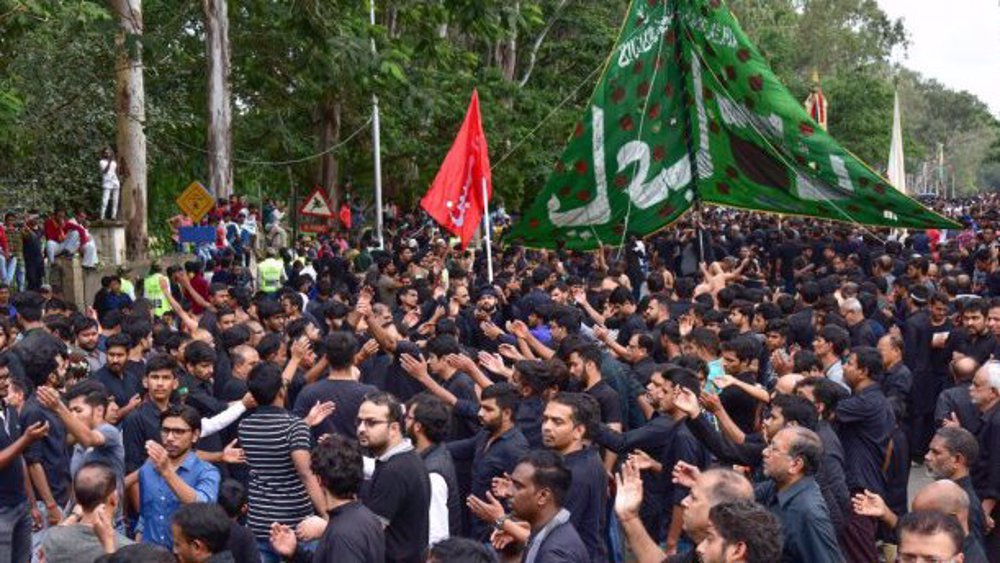
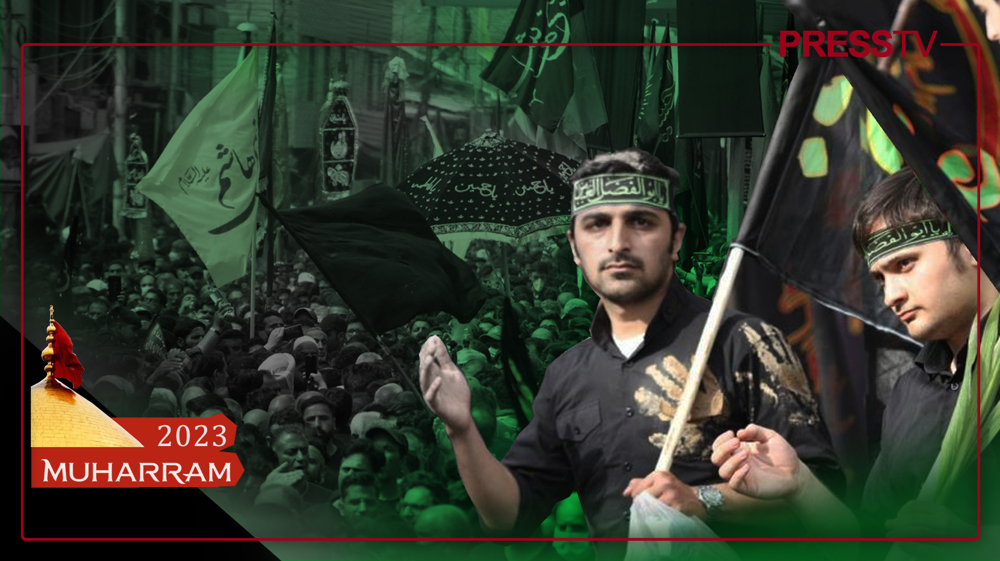
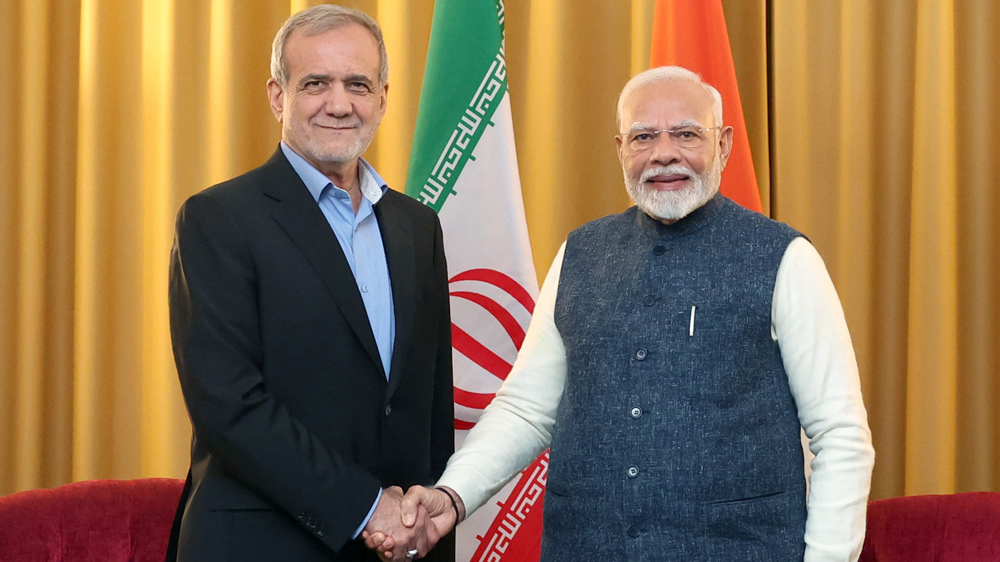

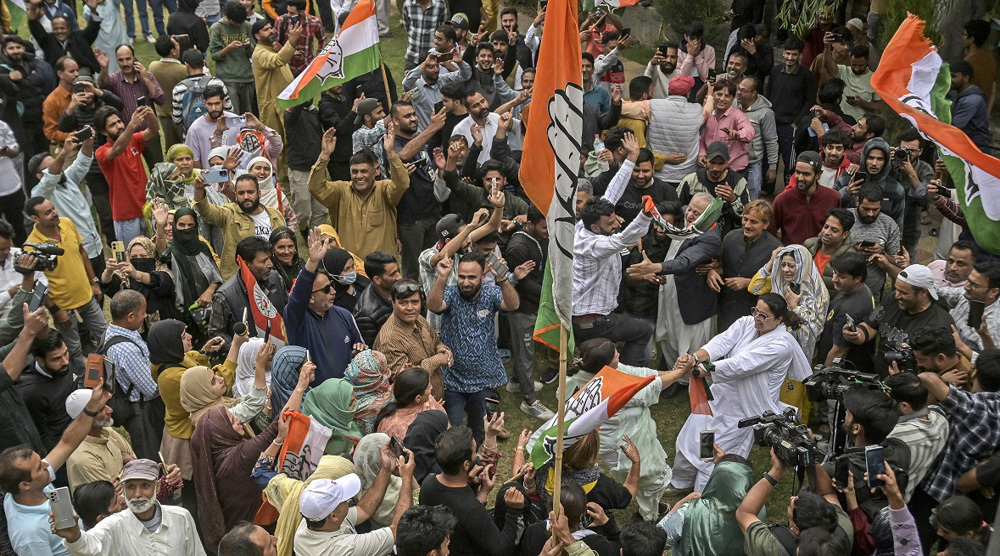



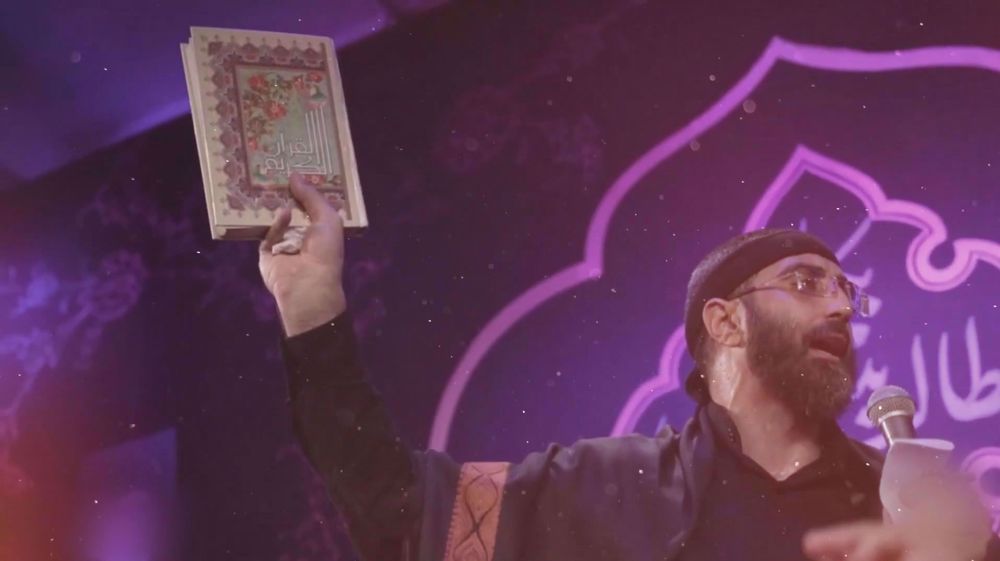
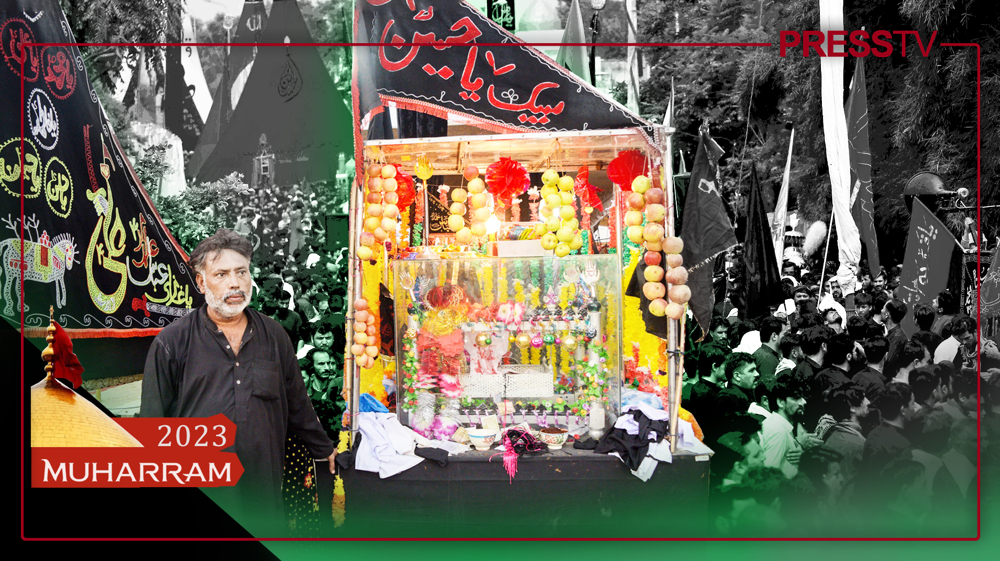
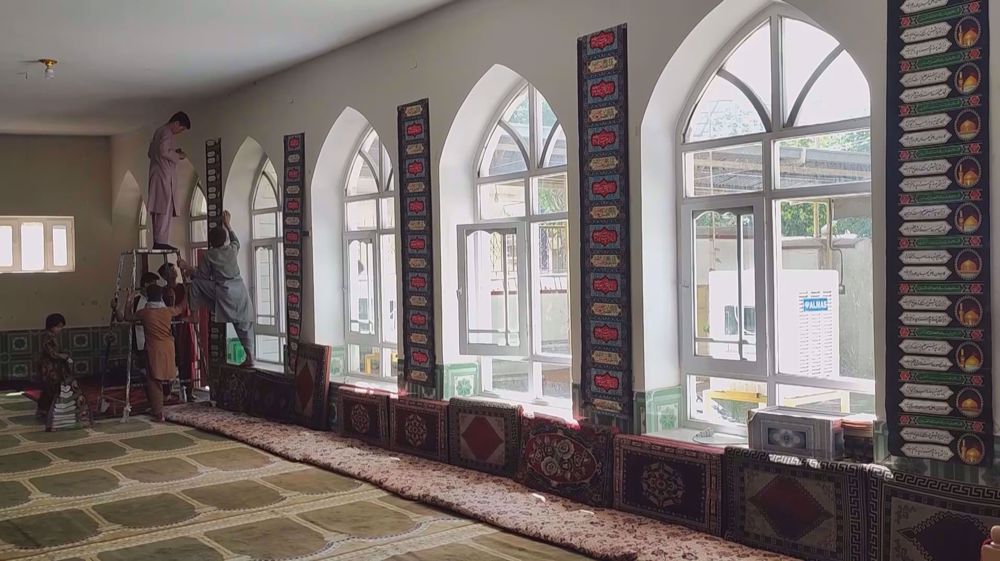

 This makes it easy to access the Press TV website
This makes it easy to access the Press TV website